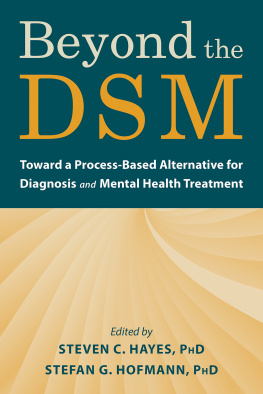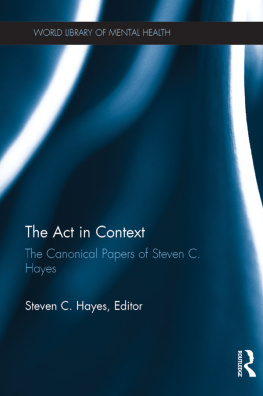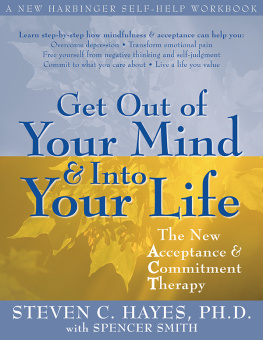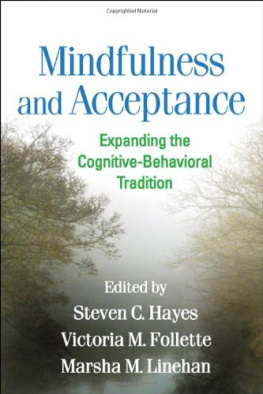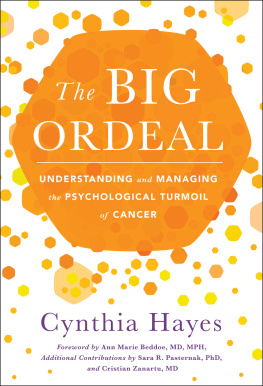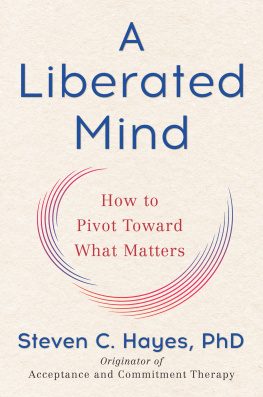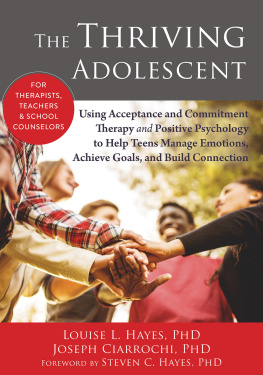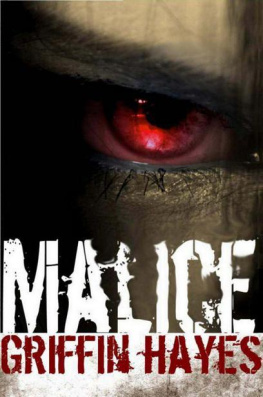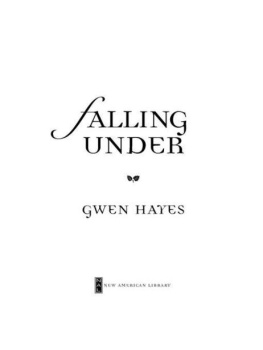Steven C. Hayes - Beyond the DSM
Here you can read online Steven C. Hayes - Beyond the DSM full text of the book (entire story) in english for free. Download pdf and epub, get meaning, cover and reviews about this ebook. year: 2020, genre: Romance novel. Description of the work, (preface) as well as reviews are available. Best literature library LitArk.com created for fans of good reading and offers a wide selection of genres:
Romance novel
Science fiction
Adventure
Detective
Science
History
Home and family
Prose
Art
Politics
Computer
Non-fiction
Religion
Business
Children
Humor
Choose a favorite category and find really read worthwhile books. Enjoy immersion in the world of imagination, feel the emotions of the characters or learn something new for yourself, make an fascinating discovery.
- Book:Beyond the DSM
- Author:
- Genre:
- Year:2020
- Rating:5 / 5
- Favourites:Add to favourites
- Your mark:
- 100
- 1
- 2
- 3
- 4
- 5
Beyond the DSM: summary, description and annotation
We offer to read an annotation, description, summary or preface (depends on what the author of the book "Beyond the DSM" wrote himself). If you haven't found the necessary information about the book — write in the comments, we will try to find it.
Beyond the DSM — read online for free the complete book (whole text) full work
Below is the text of the book, divided by pages. System saving the place of the last page read, allows you to conveniently read the book "Beyond the DSM" online for free, without having to search again every time where you left off. Put a bookmark, and you can go to the page where you finished reading at any time.
Font size:
Interval:
Bookmark:

A broad and deep consensus exists, even among the framers of DSM criteria, that alternative paradigms for diagnosis and treatment of psychological disorders must be developed if the field is to advance. But just what approach will be best? In this forward-looking volume, Hayes and Hofmann assemble the most sophisticated treatment modelsall of which emphasize process, dimensionality, a functional analysis of behavior, and the ability to individualize and personalize diagnosis. Every mental health professional will benefit from these developments.
David H. Barlow, PhD, ABPP , professor of psychology and psychiatry emeritus, and founder of the Center for Anxiety and Related Disorders (CARD) at Boston University
Syndromal diagnosis provides a starting point for the classification of mental health disorders, but one that is inherently limited in terms of tracking underlying etiological pathways and principles of change. This volume describes a process-based approach that provides a far more compelling basis for organizing the causal processes underlying the etiology of mental health problems, be they diseases or disorders or the adaptations themselves that evolved to enhance reproductive fitness.
Steven D. Hollon, PhD , Gertrude Conaway Vanderbilt professor of psychology at Vanderbilt University with a long-standing interest in the treatment and prevention of depression
I LOVE this book. A surefire way to get a headache is to try to provide evidence-based care using empirically supported treatments for DSM syndromes while also attending to the evidence-based processes described in the basic science literature that appear to account for the struggles of the individual Im caring for right now. This book addresses that dilemma, offering creative ideas for a unified science of psychopathology, its classification, and its treatment.
Jacqueline B. Persons, PhD , director of the Oakland Cognitive Behavior Therapy Center; clinical professor in the department of psychology at the University of California, Berkeley; and author of The Case Formulation Approach to Cognitive-Behavior Therapy
The DSM-based approach is unlikely to create a better understanding of, or more effective treatments for, mental health problems. Hayes and Hofmann offer a path forward. Open to various therapeutic traditions, based in science, and sensitive to client individuality, this book lays out multiple exemplars of understanding and treating mental health concerns based on the processes that create and maintain the problemsrather than the categories that describe them. This is a thought-provoking book that should be on the shelves of all clinicians and clinical researchers.
Douglas W. Woods, PhD , dean of the Graduate School, and professor of psychology at Marquette University
This impressive volume is a genuine advance in our efforts to understand psychological dysfunction. Hayes, Hofmann, and their contributing authors present exciting alternatives to traditional categorical diagnosis la DSM and ICDdrawing from research that spans neuroscience, learning, coping, and culture. These new ideas can enrich the search for mechanisms that underlie psychopathology, guiding identification of treatment targets and the construction of principle-guided, individually tailored interventions .
John R. Weisz, PhD, ABPP , is professor of psychology at Harvard University, and director of the Harvard Lab for Youth Mental Health, specializing in developing and testing transdiagnostic interventions for young people
One would certainly expect Hayes and Hofmann to provide a thoughtful and integrative compendium on process-based approaches to assessing, diagnosing, and treating psychological problems. In this edited volume, they assemble cutting-edge thought leaders to effectively deliver on this expectation. Chapters provide a depth and breadth of focus that is detailed yet easy to consume, laying a solid foundation from which researchers and practitioners of various theoretical orientations can better understand and help shape a process-based future for psychotherapy.
Gordon J. G. Asmundson, PhD , professor of psychology at the University of Regina, development editor for Clinical Psychology Review , and editor in chief of Journal of Anxiety Disorders
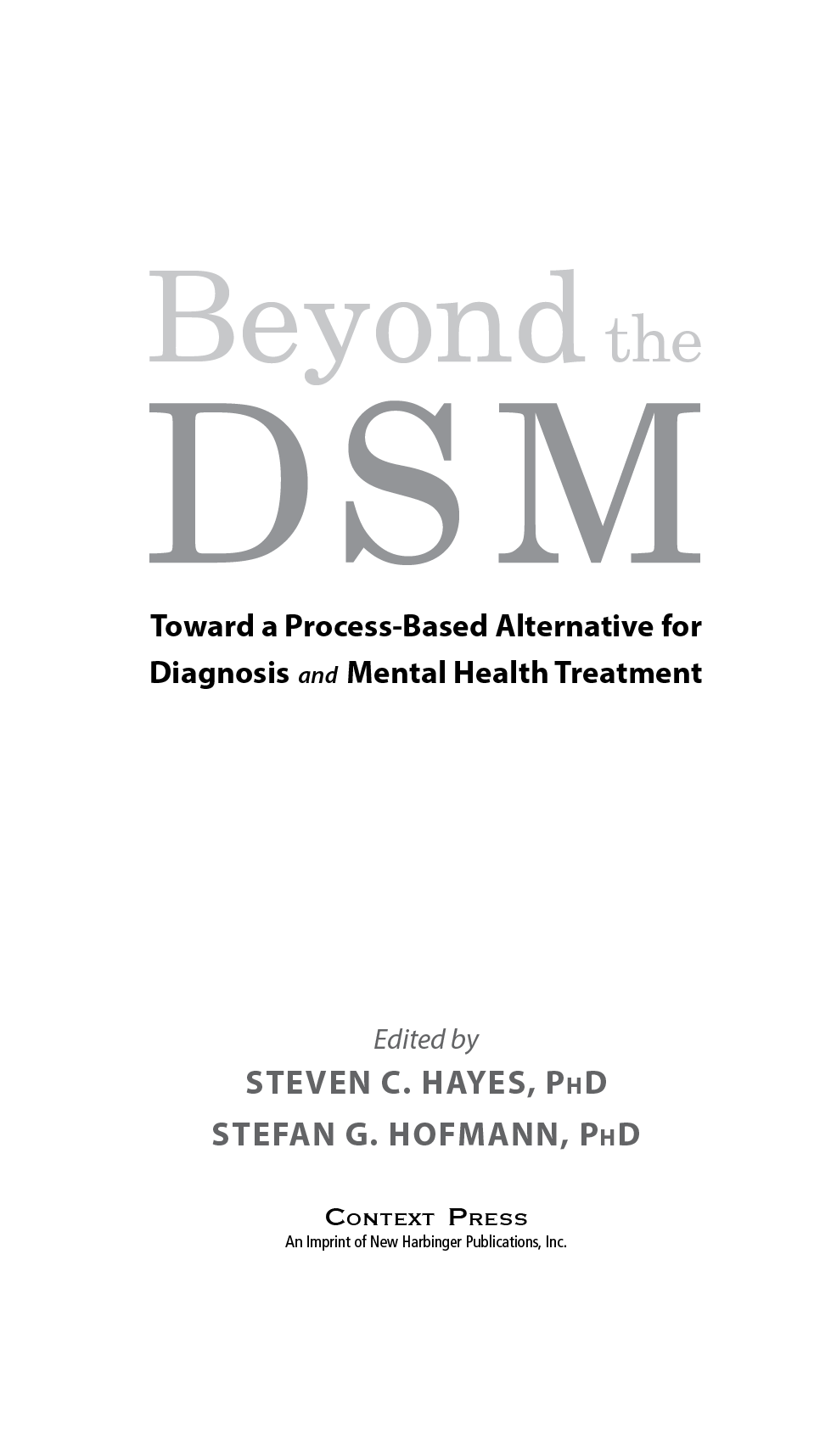
Publishers Note
This publication is designed to provide accurate and authoritative information in regard to the subject matter covered. It is sold with the understanding that the publisher is not engaged in rendering psychological, financial, legal, or other professional services. If expert assistance or counseling is needed, the services of a competent professional should be sought.
Distributed in Canada by Raincoast Books
Copyright 2020 by Steven C. Hayes and Stefan G. Hofmann
Context Press
An imprint of New Harbinger Publications, Inc.
5674 Shattuck Avenue
Oakland, CA 94609
www.newharbinger.com
The contributions to Beyond the DSM by authors who are employees of the National Institutes of Health (NIH), a part of the U.S. Department of Health and Human Services, were prepared as part of their official duties as employees of NIH and are works of the United States Government. The copyright status of these contributions is governed by 17 USC Section 105.
Cover design by Sara Christian; Acquired by Catharine Meyers; Edited by Jenessa Jackson; Indexed by James Minkin
All Rights Reserved
Library of Congress Cataloging-in-Publication Data on file
Names: Hayes, Steven C, editor. | Hofmann, Stefan G, editor.
Title: Beyond the DSM : toward a process-based alternative for diagnosis and mental health treatment / [edited by] Steven C. Hayes, Stefan G. Hofmann.
Identifiers: LCCN 2020008075 (print) | LCCN 2020008076 (ebook) | ISBN 9781684036615 (trade paperback) | ISBN 9781684036622 (pdf) | ISBN 9781684036639 (epub)
Subjects: LCSH: Diagnostic and statistical manual of mental disorders. | Mental illness--Classification. | Mental illness--Diagnosis. | Mental illness--Treatment.
Classification: LCC RC455.2.C4 B494 2020 (print) | LCC RC455.2.C4 (ebook) | DDC 616.89/075--dc23
LC record available at https://lccn.loc.gov/2020008075
LC ebook record available at https://lccn.loc.gov/2020008076
Contents
Chapter 1:
Creating an Alternative to Syndromal Diagnosis
Needed Features of Processes of Change and the Models that Organize Them
Steven C. Hayes, PhD
University of Nevada, Reno
Stefan G. Hofmann, PhD
Boston University
Joseph Ciarrochi, PhD
Australian Catholic University
For decades, intervention science has followed a primary analytic strategythat of syndromal diagnosiswhich has created a robust and progressive field but has now reached a dead end. Few now believe that an adequate field of evidence-based therapy will emerge from researchers continuing to evaluate psychosocial protocols and lists of approved medications focused on psychiatric syndromes. We must find a new strategy and way forward. The only question remaining is: What will that strategy be?
The Diagnostic and Statistical Manual of Mental Disorders ( DSM; American Psychiatric Association, 2013) and the International Classification of Diseases and Related Health Problems (ICD; World Health Organization, 2018) have dominated the field for decades and left it with an intellectual hangover as it considers its future. Our discussion here will primarily focus on the DSM, but the same controversies also apply to the ICD.
Font size:
Interval:
Bookmark:
Similar books «Beyond the DSM»
Look at similar books to Beyond the DSM. We have selected literature similar in name and meaning in the hope of providing readers with more options to find new, interesting, not yet read works.
Discussion, reviews of the book Beyond the DSM and just readers' own opinions. Leave your comments, write what you think about the work, its meaning or the main characters. Specify what exactly you liked and what you didn't like, and why you think so.

